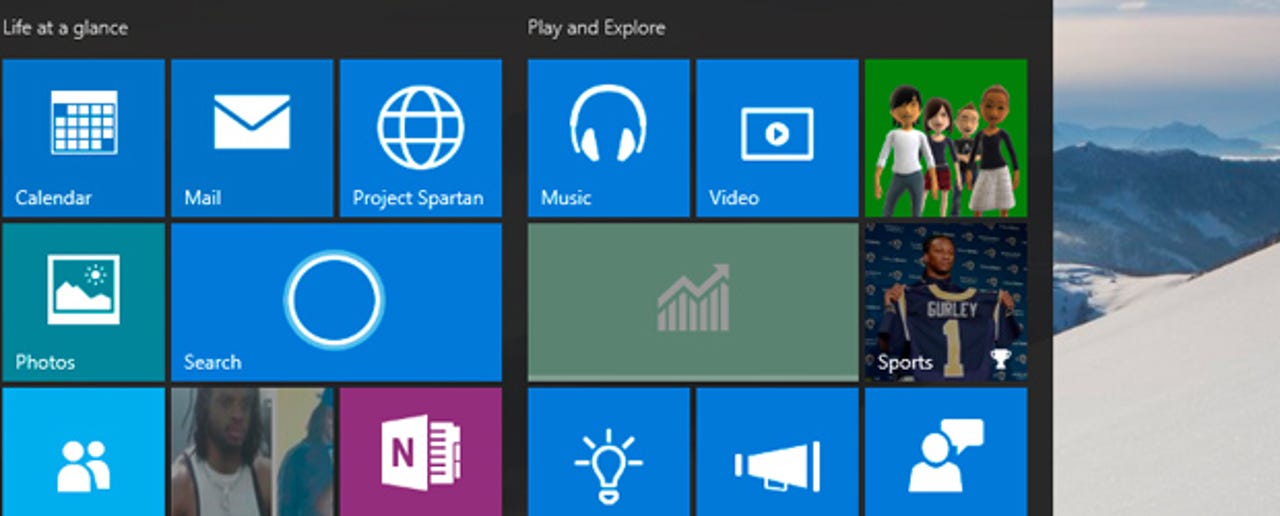Microsoft's Windows 10 meets a newfangled PC upgrade cycle


The PC market is in decline and the latest data from IDC and Gartner simply confirm the obvious: PCs are a tough sell. What's unclear is whether Windows 10 will make it easier for the PC market?
Here's the short answer: Probably not.
As Windows 10 lifts off---with a splash designed for fans---there was some hope that PCs would get a boost. However, IDC data indicates that PC shipments in the second quarter fell 11.8 percent to 66.1 million units. Every vendor not named Apple lost momentum.
The reasons for this decline can be attributed to the pause ahead of Windows 10, tough comparisons to the end-of-life of Windows XP and currency fluctuations. In any case, observers aren't putting much value on the PC market. Wells Fargo noted that HP shares are discounted to a degree where investors aren't giving any value to the PC business, which accounts for more than 10 percent of the company's profits.
Microsoft plans a fan-focused Windows 10 launch kick-off | Beyond new and free, what is the attraction of Windows 10? | Microsoft bundles analytics services and adds a Cortana front-end
Conventional wisdom dictates that Windows 10 should lead to some PC market stability. Rest assured that the supply chain will restock the channel somewhat with Windows 10 devices.
However, Microsoft's move to offer easy upgrades to existing customers is a precursor to a Windows as a service play in the future.
Intel's results are likely to tell the tale on Wednesday. The PC processor business for Intel is expected to suck wind. The server business may not be so hot either. JMP Securities analyst Alex Gauna said:
We see Intel missing market expectations for a sequential increase in June quarter revenue and for it to lower full-year sales expectations from flat to a low-single digit decline due to a combination of PC industry weakness, staggered Windows 10 ramp fundamentals, and decelerating server fundamentals.
It's worth questioning whether there will even be a Windows 10 ramp.
PC makers aren't trumpeting much in the way of new Windows 10 designs. For the most part, Windows 10 is fixing what was wrong with Windows 8. Microsoft's free-ish upgrade also means many will update PCs, but not buy new ones.
Windows 10 OEM hardware requirements
Microsoft will begin counting Windows 10 revenue as deferred in a move that indicates subscriptions in the future. Jefferies analyst John Difucci noted that the big bang associated with Windows launches is gone. With that big bang went PC sales surges. Nevertheless, PCs and Windows are connected still. DiFucci noted:
We do not believe the underlying economics of Windows have changed: Bookings (which are deferred and then recognized ratably) are still tied to PC unit growth and mix (e.g., Corporate vs. Consumer, Developed vs. Emerging markets) and bookings ultimately drive revenue, EPS, and most importantly, cash flow (which should not change). We still see the underlying PC market as secularly challenged.
In fact, there's a scenario where Microsoft tries to move to a Windows as a service model and then turns PC buyers away to other platforms such as Google and Apple.
That latter scenario may be a leap too far, but maybe not. Microsoft may ultimately try to change the economics for the PC industry, but it's unclear whether an OS subscription would fly.
Bottom line: The PC market won't get a Windows 10 pop. It's unclear what exactly will get the PC market moving.
More:
- Why it doesn't matter if Windows 10 is (or isn't) the last version of Windows
- Microsoft's big goal: one billion or bust
- What Microsoft will add to and delete from its Edge browser
- Upgrades won't be free for everyone: Do you qualify?
- The most important Windows PC upgrade: Touch-enabling
- Microsoft offers IT guidance to prepare for Windows as a Service
- Windows 10 "unequivocally better" than OS X on new MacBook
- Can Windows 10 save the PC?